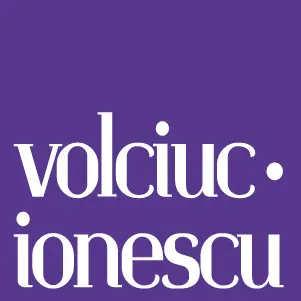On 26 March 2019, the European Parliament passed a proposal for a directive regarding copyright in the Digital Single Market (the “Copyright Directive“) aimed at ensuring that traditional rights and obligations of copyrights law applies to the Internet in the EU.
The Copyright Directive imposes rules for use and reproduction of content in the online environment and adequate compensation for content creators, while also providing exceptions and carve outs to copyright and related rights to ensure that the Internet remains a space for freedom of expression.
Online use of press publications
The Copyright Directive provides press publishers with the right to enable and the right to prohibit the use of their press publications in the online environment by information society service providers (“Publishers’ Rights“), thus enabling press publishers to negotiate adequate compensation. These rights expire in two years after the press publication is published.
Information society service providers are defined as providers of services carried out for remuneration, at a distance, by electronic means and at the individual request of a recipient of services.
The Publishers’ Rights do not apply to: (i) private or non-commercial uses of press publication by individual users; (ii) acts of hyperlinking; (iii) the use of individual words or very short extracts of a press publication (such as snippets). This means that snippets can continue to appear in Google newsfeeds, for example, or an article may be shared on Facebook, provided it is “short”.
Online use of protected content
The online content sharing service providers (such as YouTube) will need the prior authorisation from the authors (which can be obtained for example, via licence agreements) in order to communicate works to the public or make works available to the public (“Authorisation Rule“). Moreover, under the Copyright Directive, online content sharing service providers are now primarily liable for any user-generated and user-uploaded content that infringes third party copyrights, as they are treated as communicating it to the public.
The online content sharing service providers are defined by the Copyright Directive as providers of an information society service of which the main or one of the main scopes are to store and give access to a large amount of copyright-protected works or other protected subject-matters in order to make profit.
Non-compliance with the Authorisation Rule is considered infringement of copyright protected work, unless the online content sharing service providers: (i) used their best efforts to obtain authorisation from copyright holders; (ii) used their best efforts to ensure the unavailability of specific works and other subject matter for which the copyrights holders have provided the service providers with the relevant and necessary information; (iii) acted expeditiously to remove any unauthorised content after being notified and used their best efforts to prevent future uploads.
The Copyright Directive provides that a service provider used its best efforts if it acted according to the principle of proportionality, taking into account the type of content, audience and size of the service offering and the availability of suitable and effective technology.
The Copyright Directive provides the following exceptions from the Authorisation Rule:
- non-profit online encyclopaedias (such as Wikipedia);
- open source software-developing and sharing platforms (such as Github);
- electronic communication service providers;
- online marketplaces (such as Amazon);
- business-to-business cloud services and cloud services that allow users to upload content for their own use;
- quotation, criticism or content used in the scope of caricature or parody (such as GIFs and memes).
However, it is not yet clear if services such as dating sites, Twitter or website users’ comments represent an online content sharing service provider and if they are subject to the Authorisation Rule.
Fair remuneration for authors and performers
The Copyright Directive imposes on Member States to take measures to ensure authors and performers who licence or transfer exclusive rights for exploitation of their work/performance are entitled to receive appropriate and proportionate remuneration and have a certain level of control over the exploitation of their works. The Member States have discretionary power on how to implement such measures.
These measures must include that authors and performers receive, at least once a year, relevant and comprehensive information on the exploitation of their work/performance from the parties to whom they have licensed or transferred their rights – this information facilitates adjustment of remuneration or revocation of exploitation, as described below.
Authors and performers may claim additional appropriate and fair remuneration from their counterparty who exploits their work/performance when the originally agreed remuneration is disproportionately low compared to the generated revenues. Moreover, authors and performers may revoke in whole or in part the licence or the transfer of rights where there is a lack of exploitation of that work or performance.
Next steps
The Copyright Directive will be further discussed by the European Council. Once the Copyright Directive is approved and comes into force, the Member States will have 2 years to implement it in their national legislation.




